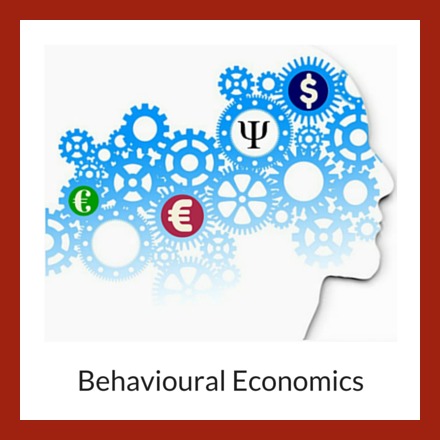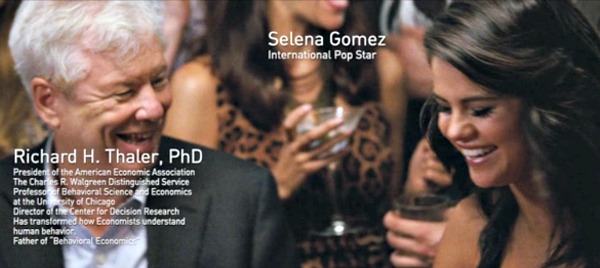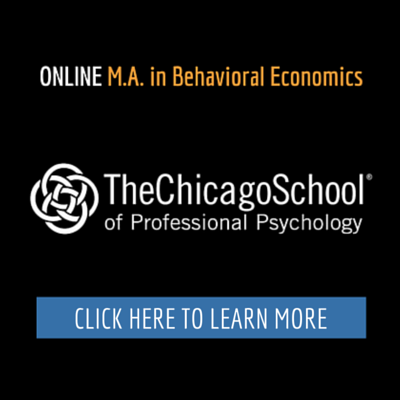Psychology Classics On Amazon

Behavioural Economics
(Behavioural Economics)
What is Behavioural Economics?
Behavioural economics is a rapidly growing discipline that draws upon psychological insights to investigate economic decision making. An interdisciplinary subject, experimentation within cognitive psychology, social psychology and neuroscience etc, has led researchers to develop robust theories which have completely revolutionized our understanding our human rationality, bias and choice.
DANIEL KAHNEMAN
One of the most important events in the recent history of behavioural economics was the award of the 2002 Nobel Prize in Economic Sciences to psychologist Daniel Kahneman. During the award ceremony it was noted that Kahneman's groundbreaking insights into human judgment and decision-making were guiding the reformulation of economic and financial theory and that the bridges which exist between economics and psychology were directly attributable to his pioneering research.
RICHARD THALER
(Screenshot from Richard Thaler's cameo appearance in the Oscar nominated film about the 2007-8 financial crisis 'The Big Short.')
Often referred to as 'The Father' of Behavioural Economics, another trailblazing figure within the field is Professor of Behavioral Science and Economics at the University of Chicago, Richard Thaler.
Writing in Havard Magazine, renowned behavioral economist David Laibson, highlighted Thaler's contribution to behavioural economics, particularly the psychological insights he provided via his regular feature "Anomalies," in the Journal of Economic Perspectives, which ran between 1987-1991. (Which you access for free below.)
According to Thaler, the premise underpinning these insights is that:
"Economics can be distinguished from other social sciences by the belief that most (all?) behavior can be explained by assuming that agents have stable, well-defined preferences and make rational choices consistent with those preferences in markets that (eventually) clear. An empirical result qualifies as an anomaly if it is difficult to "rationalize," or if implausible assumptions are necessary to explain it within the paradigm."
Study Behavioural Economics
An alternative to the traditional M.B.A., The Chicago School’s M.A. in Behavioral Economics online program provides students with a foundation in advanced psychology with a focus on business applications such as human decision-making, negotiation, marketing, and consumer behavior.
Students enrolled in The Chicago School’s online programs will enjoy a transformative educational experience with the flexibility of a program that does not have to interfere with their other commitments.
Integrating elements of economics, financial literacy, public policy, and consumer psychology, the BE program includes studies in:
- Consulting
- Social psychology
- Cognitive psychology and consumer psychology
- Statistics
- Public policy
- Economics and finance
- Game theory
Graduates of the BE program will have a unique understanding of consumer and social behavior that is a strong asset in business, politics, and nonprofit. Graduates will also have the tools necessary to excel as consultants, researchers, public servants, and marketers.
See following link for full details.
Online M.A. in Behavioral Economics
The Anomalies Series
Thanks to the American Economic Association, all issues of the Journal of Economic Perspectives are now publicly accessible online at no charge. As a result, you can now access and read all of Richard Thaler's groundbreaking articles in the 'Anomalies' series in full for free via the following links.
Weekend, Holiday, Turn of the Month, and Intraday Effects
Parimutuel Betting Markets: Racetracks and Lotteries
A Mean-Reverting Walk Down Wall Street
Interindustry Wage Differentials
Saving, Fungibility, and Mental Accounts
The Endowment Effect, Loss Aversion, and Status Quo Bias
Richard Thaler in conversation with Daniel Kahneman
Back To Top Of The Page
Go Back To The Types of Psychology Page
Go From Behavioural Economics Back To Home Page











New! Comments
Have your say about what you just read! Leave me a comment in the box below.